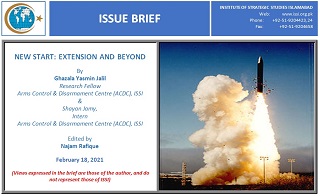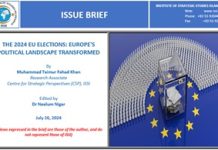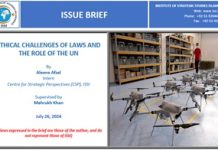Moscow and Washington agreed to extend the 2010 bilateral arms control treaty, New Strategic Arms Reduction Treaty (New START) on January 26, 2021 for another five years after a telephone call between newly elected US president Joe Biden and Russian President Vladimir Putin.[1] For months, the fate of the New START treaty had seemed uncertain. The extension has been welcomed by Russia and arms control proponents across the world. New START, signed in 2010 between Russia and the US put limits on the number of deployed strategic nuclear warheads to 1,550 and deployed strategic delivery systems to 700 for each state. The treaty was set to expire on February 5, 2021, unless both sides agreed to extend it for a further five years.
While Russia had time again offered to extend the treaty without conditionalities, the Trump Administration refused to do so putting conditionalities on its extension. The extension of New START is of immense importance and its implications must be examined. What were the factors impeding the extension of the treaty? How will the extension proceed and what lies beyond? How will it affect the non-proliferation regime? These are vital questions that will set the tone for US-Russia bilateral arms control and perhaps the non-proliferation regime.
















